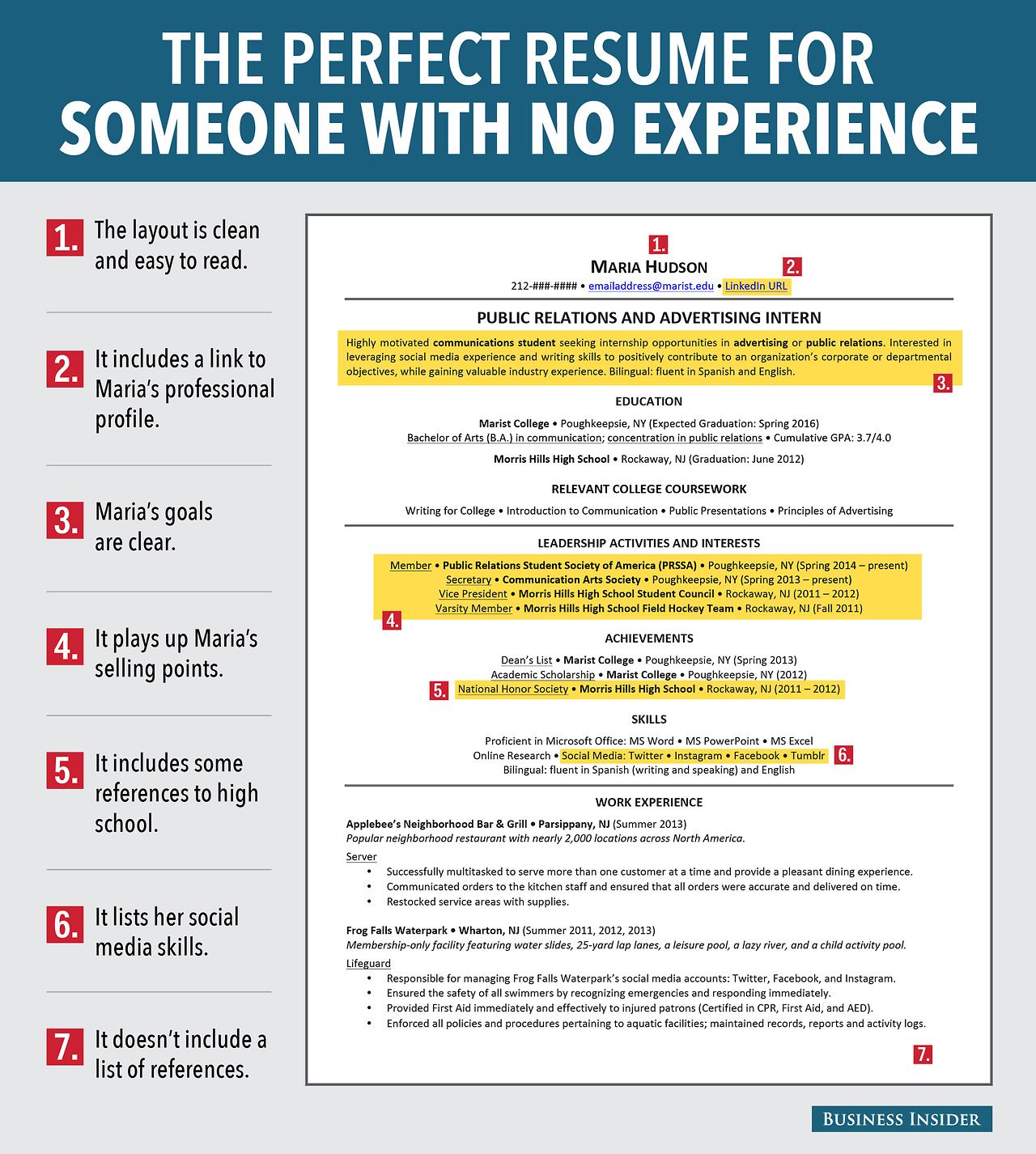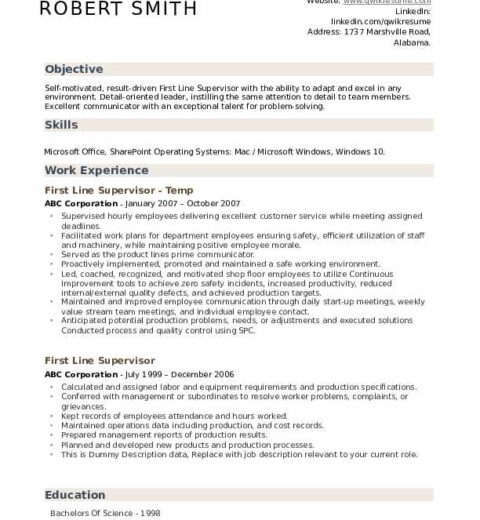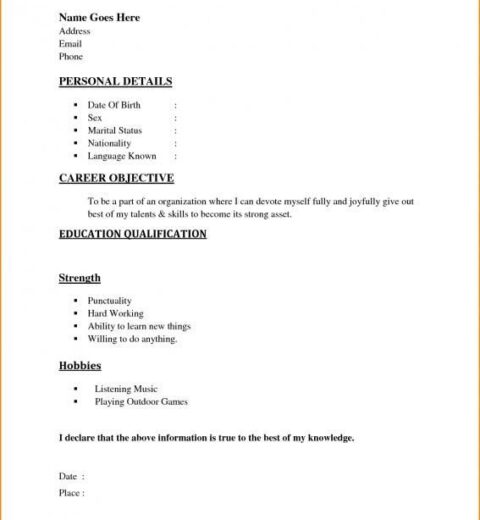Embarking on the journey of job hunting can feel like standing at the edge of a vast ocean, gazing into the expansive unknown. With every wave that crashes against the shore, potential candidates often experience the unsettling reality of having little to no experience to present to prospective employers. However, the absence of extensive employment history does not spell disaster. Instead, it opens a vault of opportunities to showcase unique qualities that resonate beyond mere job titles. Let us delve into the art of crafting a resume that captivates, even in the shadow of inexperience.
1. Begin with a Compelling Objective Statement
Imagine your resume as an intriguing book cover; the objective statement serves as the blurb that entices readers to turn the pages. This brief section should articulate your aspirations and convey your enthusiasm for the role you are pursuing. Utilize clear and concise language, focusing on what you bring to the table, rather than what you lack. For instance, a statement such as “Aspiring marketing professional eager to leverage compelling communication skills and a passion for innovation to contribute to team success” not only highlights your ambition but also sets the tone for the rest of your resume.
2. Leverage Your Education
Education is often an underappreciated gem in the treasure trove of a nascent professional’s resume. Whether you are a recent graduate or currently enrolled in an academic institution, your educational background can be a significant advantage. Include relevant coursework, special projects, or honor societies that reflect your competencies and dedication. For example, if you were part of a team project that involved researching marketing trends, mention the skills acquired during this process. Such entries can demonstrate practical application of knowledge, revealing potential that otherwise remains hidden in the depths of academic achievements.
3. Highlight Relevant Skills
Skills are the brushstrokes on the canvas of your resume, vividly illustrating your potential. Categorize your skills into hard and soft skills. Hard skills are tangible abilities, such as proficiency in specific software or foreign languages. Conversely, soft skills encompass traits like communication, teamwork, and adaptability. In the absence of professional experience, emphasize transferable skills that are applicable across various industries. For example, if you have honed your organizational skills through volunteer work, present that as a testament to your ability to manage time effectively and maintain focus under pressure. The effectiveness of your resume burgeons when you articulate your skills in a manner that resonates with the prospective role.
4. Showcase Volunteer Work and Extracurricular Activities
In the vast ocean of career endeavors, volunteer work and extracurricular activities act as islands of meaningful experience. Engaging in community service or participating in clubs allows you to cultivate a plethora of skills and forge connections within your field of interest. When detailing these experiences, focus on your contributions and the skills derived from them. For instance, managing a fundraising event demonstrates leadership, organizational, and communication skills in action. These experiences offer a glimpse into your character and work ethic, making them invaluable to your narrative.
5. Include Projects and Portfolios
For those in creative or technical fields, showcasing projects and portfolios can function as your lighthouse in the fog of inexperience. If you have completed personal projects, freelance work, or relevant coursework assignments, these can serve as robust evidence of your capability. An art student might present a portfolio of their artwork, while a budding software developer can include links to GitHub repositories containing their coding projects. Each showcased effort transforms your resume from a mere list of qualifications into an engaging story of your journey and innovation.
6. Utilize Certifications and Online Courses
In today’s digital era, a plethora of online resources exist that allow individuals to enhance their skill sets independently. Certifications from reputable platforms bolster your credibility and convey your commitment to professional growth. If you have completed any relevant online courses or earned certifications, such as project management or digital marketing badges, list them prominently on your resume. This proactive approach illustrates a robust desire to learn and stay current in your field, setting you apart from other candidates.
7. Format Matters
Equally essential is the presentation of your resume. A well-organized, aesthetically pleasing resume can often leave a lasting impression, akin to a polished gem. Use consistent formatting, clear headings, and bullet points for easy readability. An overly cluttered resume can obscure your strengths, whereas a clean design can draw attention to your most noteworthy aspects. Employing white space effectively allows the reader’s eyes to glide over the document, enhancing the overall experience.
8. Personalize Your Resume for Each Job Application
In the world of job applications, a one-size-fits-all approach is seldom effective. Tailoring your resume to match the specific requirements of each job can significantly enhance your odds of being noticed. Carefully examine the job description and align your skills, experiences, and objectives with the company’s values. Such customization not only showcases your attentiveness but also underscores your genuine interest in the position.
9. The Power of References
While you may feel uncertain about lacking experience, enlisting references can act as a safety net. Consider asking teachers, mentors, or community organizers who can vouch for your skills and work ethic. Their testimonials can add depth to your candidacy, demonstrating that others recognize your potential. Ensure that your references are aware they might be contacted and are willing to provide a favorable recommendation.
In conclusion, the nuances of a resume carry substantial weight, even when experience is sparse. By harnessing creative strategies—such as emphasizing education, skills, volunteer experiences, and undertaking continuous learning—you can forge a compelling narrative that resonates with employers. Remember, every individual has a unique story to tell. It’s time to let yours shine through the artful presentation of your qualifications, transforming the blank canvas of your career into a vibrant tapestry of potential.




